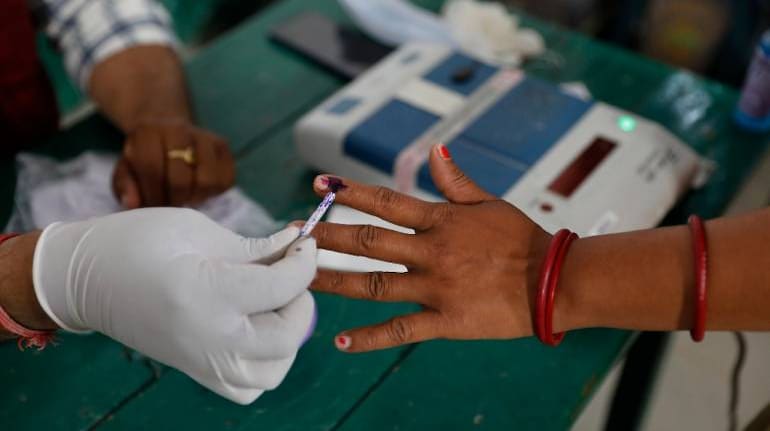



With the last date for withdrawal for candidates over, the battlelines for Karnataka elections have been drawn seat wise. It is a very crucial election for all the three main contenders. Congress needs to prove to its voters that it can beat the BJP in a largely one-to-one contest. BJP needs to win to give legitimacy to its claims of growth in the southern part of India. JD(S) needs to stay relevant in state politics.
Congress hopes a win in Karnataka will rub off on the other five states scheduled for polls later this year: Rajasthan, Madhya Pradesh (MP), Telangana (TG), Chhattisgarh (CG) and Mizoram, out of which it is in power in two states.
It hopes a victory would charge up Congress cadre and leaders for the bigger fight in 2024. It would also put to rest all speculation about who is fit to lead any joint opposition front against the saffron party.
Karnataka Win Didn’t Help In Other States
Every election is different, as issues and context are different. Will the Karnataka outcome impact the results of five state elections due later this year?
 Source: ECI, Author’s Research
Source: ECI, Author’s Research
 Source: ECI, Author’s ResearchNote:(i) Lok Sabha (Winner / SLP) refers to the party winning the maximum number of seats in that particular state.(ii) Red highlights split verdict in that particular state. The moral of the story is, even if BJP loses Karnataka or any other state election later this year, it can turn the tables and win in these states in Lok Sabha elections when the ticket of PM is on stake. The Modi factor which is 5-10 percent in state elections, was 32 percent in national elections 2019 as per CSDS. A victory for Congress does not guarantee a sound performance in general elections in the states, as witnessed in MP, Chhattisgarh and Rajasthan, because of the lack of a PM face which can match PM Modi. PM and CMs: “Presidential” Effect A study by Matthew J. Webb and Albert Wijeweera show that across party types, there is a strong and statistically significant correlation in party performance between the two elections held within the eighteen months during the period between 1980 and 2009. However post 2009, the correlation is weakening. National elections, more so in the Modi era, are being contested Presidential style. In 2019, for 37 percent of voters the PM's face was the most important consideration as per an Axis My India survey. CSDS didn’t even have “PM candidate” option in its voting consideration question before 2014.
Source: ECI, Author’s ResearchNote:(i) Lok Sabha (Winner / SLP) refers to the party winning the maximum number of seats in that particular state.(ii) Red highlights split verdict in that particular state. The moral of the story is, even if BJP loses Karnataka or any other state election later this year, it can turn the tables and win in these states in Lok Sabha elections when the ticket of PM is on stake. The Modi factor which is 5-10 percent in state elections, was 32 percent in national elections 2019 as per CSDS. A victory for Congress does not guarantee a sound performance in general elections in the states, as witnessed in MP, Chhattisgarh and Rajasthan, because of the lack of a PM face which can match PM Modi. PM and CMs: “Presidential” Effect A study by Matthew J. Webb and Albert Wijeweera show that across party types, there is a strong and statistically significant correlation in party performance between the two elections held within the eighteen months during the period between 1980 and 2009. However post 2009, the correlation is weakening. National elections, more so in the Modi era, are being contested Presidential style. In 2019, for 37 percent of voters the PM's face was the most important consideration as per an Axis My India survey. CSDS didn’t even have “PM candidate” option in its voting consideration question before 2014. Source: ECI, Author’s Research The chatter about the general elections started post the Gujarat election results late last year. Since Lok Sabha elections will be held within a year of the Karnataka state elections, the party which wins gets some momentum. However, that's not sufficient, as the goal post shifts from CM election to PM election. While Congress (if it wins) would try to create a narrative that the results are a referendum on PM Modi’s performance at the Centre, voters are smart enough to differentiate that it is a referendum on CM Bommai’s administration. Voters are increasingly voting differently in state and national elections. Hence, the Karnataka results may not significantly impact the outcome of other state elections this year and national elections next year. Amitabh Tiwari is a former corporate and investment banker-turned political strategist and commentator. Twitter: @politicalbaaba. Views are personal and do not represent the stand of this publication.
Source: ECI, Author’s Research The chatter about the general elections started post the Gujarat election results late last year. Since Lok Sabha elections will be held within a year of the Karnataka state elections, the party which wins gets some momentum. However, that's not sufficient, as the goal post shifts from CM election to PM election. While Congress (if it wins) would try to create a narrative that the results are a referendum on PM Modi’s performance at the Centre, voters are smart enough to differentiate that it is a referendum on CM Bommai’s administration. Voters are increasingly voting differently in state and national elections. Hence, the Karnataka results may not significantly impact the outcome of other state elections this year and national elections next year. Amitabh Tiwari is a former corporate and investment banker-turned political strategist and commentator. Twitter: @politicalbaaba. Views are personal and do not represent the stand of this publication. Discover the latest Business News, Sensex, and Nifty updates. Obtain Personal Finance insights, tax queries, and expert opinions on Moneycontrol or download the Moneycontrol App to stay updated!